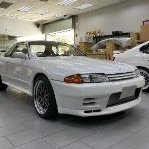Can a 1050kg car out brake a 1500+kg r34 gtr?
Announcements
-
Similar Content
-
Latest Posts
-
They look good from the side though … but not back…
-
Yeah I wouldn’t recommend them. I have them on mine and the fitment is horrible. I’m a perfectionist and u cant the material to bend and adapt flush. Here are photos of mine I have … after two fittings.
-
The Trust ones (and copies like these) seem to be what a lot of people use as rear pods. https://justjap.com/products/jsai-aero-trust-style-rear-pods-nissan-r32-gtr?_pos=2&_sid=87e5511d7&_ss=r
-
That is correct. My advice would be to get the top secret ones as they are top notch quality … I have them on my car now. That is for the rear spat n1 style ones.
-
FWIW @Duncan, I think these go over the tail end of the side skirt, not as pods behind the rear arch. A bit of a stupid thing - could never understand why they exist.
-




Recommended Posts
Create an account or sign in to comment
You need to be a member in order to leave a comment
Create an account
Sign up for a new account in our community. It's easy!
Register a new accountSign in
Already have an account? Sign in here.
Sign In Now